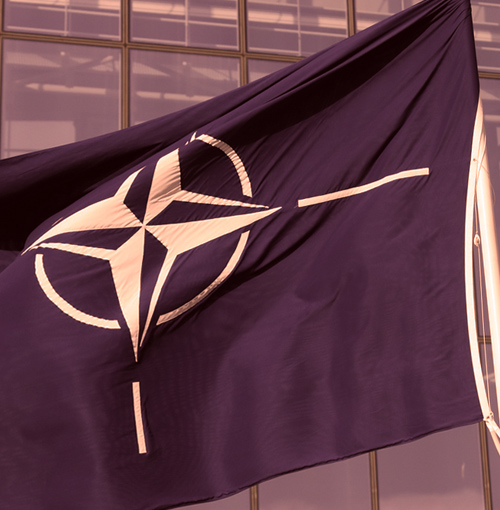
Understanding the Role of the U.S. Trade Representative (USTR)
Navigating the vast landscapes of international trade requires both finesse and a deep understanding of complex policy frameworks. At the helm of these extensive operations in the United States is an essential figure, known as the U.S. Trade Representative (USTR). The USTR plays a pivotal role in shaping, developing, and coordinating U.S. international trade policies while acting as a spokesperson and key negotiator for the nation.
As we delve into the intricate tapestry of the USTR's role, the office's history, and the personalities who have donned the mantle, we aim to provide a thorough exploration of this influential position.
The USTR: An Architect of Trade Strategies
The USTR holds a significant position within the U.S. government, with their office situated as part of the Cabinet and the Executive Office of the President. The appointment of the USTR is a serious matter as this individual becomes the primary advisor and negotiator on trade matters for the U.S. president. Furthermore, the USTR is a liaison, communicating the country's stance on trade issues, and voicing its stand on various international platforms.
Important: The USTR's role is not just advisory; they also actively participate in dispute resolution, especially in matters related to trade.
From the office's establishment in 1962 by the Trade Expansion Act to the present day, the USTR has been instrumental in forming, planning, and coordinating U.S. international trade and associated policies. Beyond policy formation, the USTR's responsibilities also extend to conflict resolution, especially those related to trade, and presenting significant issues for presidential verdicts. The USTR operates from multiple offices, with key locations in Brussels, Geneva, and Washington, D.C.
The individual currently serving as the USTR is Katherine Tai, who assumed office on March 18, 2021. Her role continues the legacy of the office that has played a crucial part in developing and orchestrating U.S. international trade policies.
Tip: Familiarizing yourself with the history and evolution of the USTR's office can offer a wealth of knowledge about U.S. international trade policy development.
Navigating Global Trade: The USTR's Role
The USTR's role extends beyond the borders of the United States, with one of its crucial objectives being to foster international trade relations. The USTR works to create opportunities for American businesses by negotiating agreements to open global markets. These negotiations cover a wide array of trade aspects, including commodity and direct investment policies.
The reach of the USTR's influence is extensive, with its expertise encompassing a multitude of areas such as:
- Orchestrating international commodity agreements and dealing with issues related to U.S. imports.
- Facilitating bilateral, regional, and multilateral trade and investment.
- Fostering market access for American goods and services.
- Overseeing complaints about foreign unfair trade practices, import relief, and beyond.
- Championing intellectual property protection in the context of trade.
- Managing issues related to the World Trade Organization (WTO).
Remember: The USTR covers an extensive range of trade aspects, from commodity agreements to intellectual property protection in trade.
Furthermore, the USTR's responsibilities involve engaging with various international organizations and trade groups. For example, they serve as vice-chairman of the board of directors of the Overseas Private Investment Corp. (OPIC), contribute to the Millennium Challenge Corp. board, and participate as a member of the National Advisory Council on International Monetary and Financial Policies.
As part of the role, the USTR also governs two significant trade groups, namely the Trade Policy Review Group (TPRG) and the Trade Policy Staff Committee (TPSC). These bodies encompass 19 federal agencies along with nearly 100 subcommittees and task forces that focus on specialized trade areas.
Interesting Fact: The USTR not only participates in the boards of various international organizations but also governs significant trade groups like the TPRG and TPSC.
Working Hand-in-Hand with Other Powerhouses
Interactions of the USTR are not just international; domestically, the USTR works in close quarters with both the President and Congress. They not only advise and assist the President in matters of trade but also regularly brief Congress's committees on pertinent issues such as agriculture, banking, and financial services. Furthermore, Congress appoints members to serve as official advisors on trade policy, fostering a symbiotic relationship with the office of the USTR.
The USTR closely collaborates with the President and Congress, creating a triad that significantly influences U.S. trade policies.
The USTR and Congress share a symbiotic relationship, with Congress appointing members as official advisors on trade policy.
The Lineage of the USTR
From the time of its establishment, the USTR's office has been home to many distinguished personalities. As of March 18, 2021, Katherine Tai holds this prestigious title. Prior to her, the position was occupied by several distinguished individuals, including Robert Lighthizer, Michael Froman, Ron Kirk, Susan Schwab, and Rob Portman, each contributing to the legacy of the USTR.
The Size and Structure of the USTR
The USTR is more than just a single representative. The office of the USTR houses more than 200 trade specialists. These experts bring a wealth of knowledge and experience in diverse areas spanning the globe, sectors, and industries. Their areas of expertise include but are not limited to agriculture, environment, government procurement, labor, manufacturing, small business, textiles, and influential trade organizations like the World Trade Organization (WTO) and the Organisation for Economic Co-operation and Development (OECD).
The office of the USTR spans a multitude of sectors and industries, ranging from agriculture and environment to manufacturing and small businesses.
The USTR office houses over 200 trade specialists, making it a powerhouse of expertise.
Tip: Understanding the structure of the USTR office and the areas of expertise of its specialists can help decode the intricate tapestry of U.S. trade policies.
The U.S. Trade Representative (USTR) is a pivotal figure steering the ship of international trade for the United States. As a primary advisor to the President and a key negotiator, the USTR shapes the country's international trade policies and oversees their coordination. Beyond negotiation, the USTR also safeguards American interests, expanding market access for U.S. goods and services, and addressing any unfair trade practices. Working with a multitude of specialists and renowned trade organizations, the USTR strives to ensure that the U.S. continues to play a significant role in the evolving tapestry of global commerce. The journey of the USTR, from its establishment to its current role under Katherine Tai, reflects the evolving story of U.S. trade in an increasingly interconnected world.
Stay tuned with Investora for more insights into the intriguing world of international trade and the instrumental role of the U.S. Trade Representative.
- Share this article





